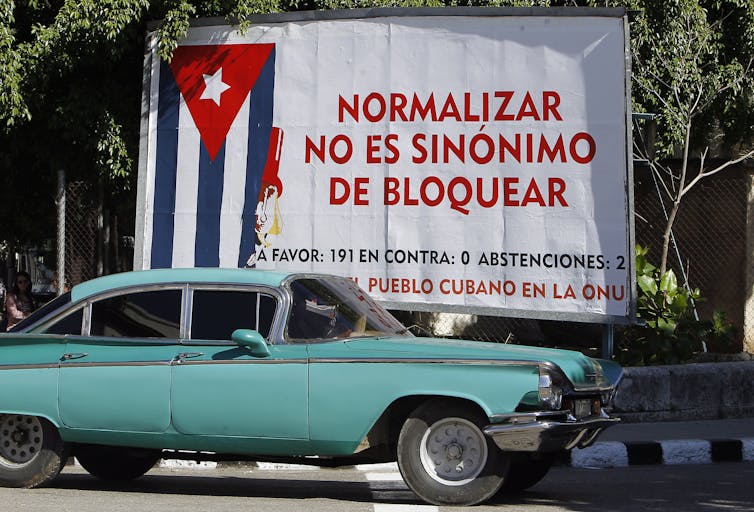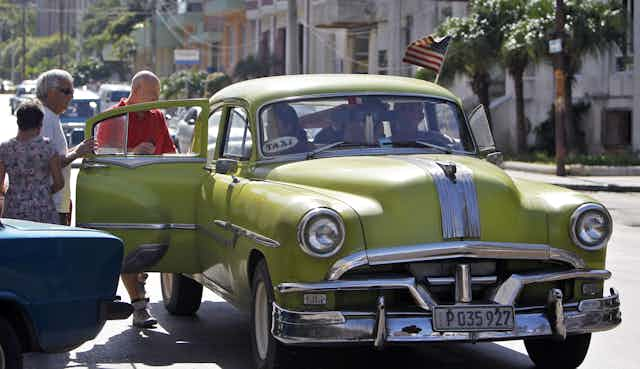Since the election of Donald Trump as the 45th US president, many in Cuba are wondering: what next? What next for Cuban-American diplomatic relations, or the recently reopened embassies in Washington and Havana? For Cuban-American business and trade or the Guantanamo Bay Naval Base? And what about the 60 men remaining in Gitmo Detention Facility, 20 of whom have been cleared by Periodic Review Boards for release – what next for them?
On January 22, 2009, Obama signed an executive order to close Gitmo within the year. Not the naval base – as some optimistic pundits suggested – but the detention facility. Obama’s wishes have not been fulfilled – although he has overcome mighty opposition in vastly reducing the number of detainees and speeding up the clunky and faulty review boards.
Early in the presidential campaign, Donald Trump promised to enlarge Gitmo, and to fill it with “some bad dudes”. More recently he has suggested that US citizens may be held and tried in Gitmo.
Guantanamo, as I have described before, is at the heart of US-Cuba relations. Senator Marco Rubio, for example – a prominent Cuban-American opponent to Obama – campaigned for Trump in Florida and advocated undoing Obama’s executive orders concerning Guantanamo. He continues to oppose the diplomatic thaw between the nations, arguing that it emboldens the Castro regime and provides nothing for the US.
The vice president-elect Mike Pence made a solemn promise to Miami Republicans just before the election that he and Trump “will reverse Barack Obama’s executive order on Cuba” and “will support a continuation of the embargo until we see real political freedom in that nation once and for all”.
Such pledges were evidently appealing – Trump received half the Cuban-American vote, a result that surprised many given his inflammatory declamations against Hispanics, in particular Mexicans. He also received last-minute support from veterans of the Bay of Pigs. Trump is now assembling a team that by every indication will contain staunch opponents of Obama’s hopes to end the long cold war with Cuba.
Cuba on the alert
While leaders of nations around the world greeted Trump’s victory with celebration, reservation or condemnation, Cuban president Raúl Castro responded by initiating national military mobilisations. These Bastion Strategic Exercises, first introduced with Reagan’s election and then reintroduced in 2004 in response to George W Bush’s Cuba policies, are intended to strengthen Cuba’s defence capacity against military threat from the US, and they involve multiple units of land, sea and air forces.

Yet Trump is not going to invade Cuba – why would he? He will have enough on his plate managing domestic civil rights concerns and protests against his plans to increase the fossil fuel industry beyond its present dangerous levels of exploitation. The military exercises in Cuba are a political statement which tap into a long tradition of visible militarised defiance and of galvanising (or attempting to galvanise) national unity against a common aggressor. “Bastión,” wrote Castro in the state news organ Granma on November 16, “is heir to the richest traditions of struggle […] the guardian of the spirit of resistance, heroism and rebellion, from the Wars of Independence to the 21st century.”
The message to Trump could not be clearer. If Rubio, Pence or Trump believe that ratcheting up the diplomatic pressure will lead to Cuban capitulation then they wilfully ignore this very long tradition that Raúl Castro eulogises.
Neither will their stance improve human rights in Cuba, an issue Trump has raised. If the heat is turned up, Castro will be less likely, for example, to open Cuba’s prison system to scrutiny by international agencies such as Human Rights Watch or Amnesty International. Similarly, the Cuban state has for decades suppressed internal opposition by claiming – often correctly – international conspiracies to sabotage the revolution. The diplomatic thaw of the past few years has mirrored – in some areas – an internal thaw of such restrictive state authority in Cuba.
Trump’s changing stance
But who can predict what Trump will do? He demonstrated wild inconsistency throughout the campaign. In an interview of September 2015, he seemed to support Obama’s initiatives, stating: “50 years is enough – the concept of opening with Cuba is fine.” A year later, while still campaigning, Trump responded to the question “Would you break off diplomatic relations though on day one?” with the ambivalent answer, “I would do whatever you have to do to get a strong agreement” – and indicated that he would wait before appointing an ambassador in Havana. Currently, the embassy is run by interim chargé d’affaires, Jeffrey DeLaurentis.
Yet Trump is a businessman – indeed Hillary Clinton’s legal team has already claimed that Trump’s business associates have done business with Cuba, an allegation he refutes. Rather than attempting to isolate Cuba, he may see commercial opportunity and seek to open up trade with US businesses.
But if Trump wanted to open up Cuba for US business, he would have to reverse his own plans to reverse Obama’s plans. And he’d have to use his own executive orders to bypass hostility from his own party in Congress. This all seems very unlikely. Yet– as we’ve seen – with Donald Trump, anything seems possible.

